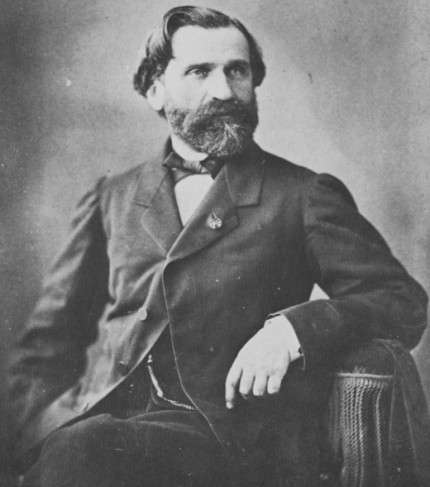Muti, CSO serve up yet more Verdi before the veal and vichyssoise

The Chicago Symphony Orchestra began its first week of the fall season with three local events, but the venues and audiences could hardly have been different.
The official opener Thursday at Symphony Center featured an exuberant mix of Verdi and Brahms, after a performance Wednesday at Morton East High School in Cicero. The latest installment in their Citizen Musician initiative, this concert tapped into a younger suburban audience, and included a collaboration with members of the Morton East Choir.
On Saturday night, the attire of the CSO faithful morphed from Hollister t-shirts to Hermés handbags for the annual Women’s Board Symphony Ball. If the mid-week event was an investment in the audiences of the future, the Gala addressed today’s bottom line, earning a cool $1.2 million for the orchestra’s coffers.
While there is a good deal of overlap in the CSO’s first few programs of the season, the focal point is the music of Verdi, who (in case you hadn’t heard) is enjoying a thorough world-wide celebration on the occasion the 200th anniversary of his birth.
Muti is widely regarded by press and publicists as the world’s most authoritative Verdi interpreter—heady kudos indeed, but fully justified by his memorable residency in Chicago. His acclaimed 2011 CSO and CSO Chorus performances of the Messa da Requiem spawned a recording that earned two Grammies, and the just-released disc of Otello is likely to earn similar plaudits. The Requiem returns to the stage for a much-hyped live webcast October 10. But the gaze of most Verdi aficionados is firmed fixed to four upcoming performances of Macbeth.
Saturday night’s 70-minute program contained riveting performances of two excerpts from the opera, enough to whet the appetite for the main event. There are few chances to indulge in Verdi’s purely orchestral music outside of the overtures, and the maestro and his forces made a strong case for the Ballet Music as dramatically indispensable, and not mere ear candy for his Parisian audiences.
The arc of the narrative was easy to conjure, and details of the composer’s underrated orchestration skills were everywhere apparent. The trombone choir’s somber opening incantations and Mathieu Dufour’s playful and beguiling flute solo were just two of many treats leading to the final grotesque, whirling waltz. After the evocative, sparely scored opening bars the CSO chorus delivered a poignant reading of “Patria oppressa,” a dirge for fallen compatriots.
In a CSO first performance, the men of the chorus delivered a virile account of “Si ridesti de Castiglia” from Ernani, a solemn vow for battlefield revenge. Soprano Barbara Frittoli and bass Luca Dall’Amico were utterly compelling as Father Superior and Leonora, and concertmaster Robert Chen gave a radiant account of Leonora’s theme.
The overture to Nabucco, Verdi’s first important stage victory, was vigorous and fleet, betraying a hint of the devious charm of Rossini. And no homage to the composer would be complete without “Va, pensiero” from the same opera, Verdi’s ode to his homeland, spontaneously intoned by mourners at the composer’s funeral, and given a sweetly understated performance for Symphony Center’s well-heeled faithful.
Posted in Uncategorized


